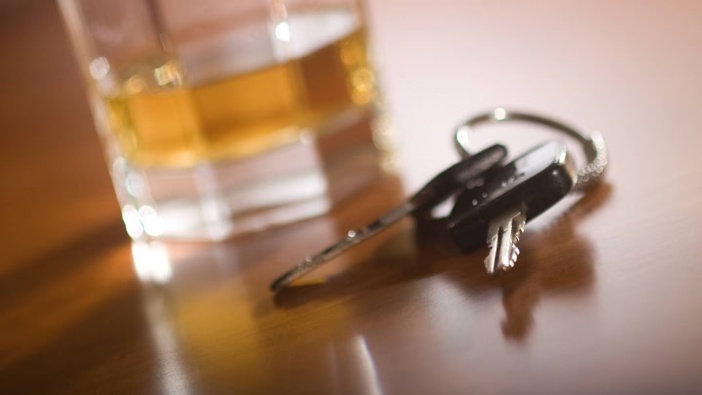Thanks to another announcement from the Transport Minister Simeon Brown over the weekend, the police have a new target to add to their 'To Do' list.
The government has announced a crackdown on drunk and drugged drivers, setting the police a target of performing 3.3 million roadside alcohol tests a year and 50,000 roadside drug tests a year.
Anything we can do to get impaired people off our roads and prevent the carnage they can cause is a good thing.
It is a simple and effective deterrent to drink or drugged driving. I don’t know about you but I find getting breath tested a slightly nerve-wracking process, even if I haven’t dropped a drop. It works for me – the thought of a breath test is enough for me to make the most of Uber.
The problem has been – you'd think we’d stopped testing.
Up until about 3 weeks ago, I can't remember seeing a police breath testing checkpoint since before Covid. They were noticeably absent before the festive season – there always used to be checkpoints leading into Xmas as a reminder to us all to get that taxi or bus home from a work Christmas function.
And then, as if to make up for the lack of testing, I recently got breath tested three times in the space of 15 minutes by the Royal Oak roundabout in Auckland. It was about 4pm on a Sunday afternoon – obviously they were after the Sunday Funday drinkers from a local pub or two – and they were stopping drivers on two different roads leading off the roundabout. I got done twice on the way to my friends to drop something off, and once again on the way home. I got the giggles by the third, which wasn’t helpful.
Point is – bring it on. Last year was a bit of an outlier – the police did manage around 3.2 million breath tests – previous years it had been around 1.4 in 2018 and 2.1 in 2022. So it should be manageable. Keep it up. Be visible. Just knowing the police is keen to up their targets will hopefully mean more people make good decisions.
The drug testing is a slightly different and interesting case.
Getting roadside drug testing up and running has been a laborious process filled with complexities. In 2022 Labour passed legislation allowing for random roadside drug testing, but then they discovered they didn’t have a device that could record accurate results. Then another law change was introduced adding a lab test to back up the roadside test.
Along the way there have also been concerns about people testing positive – even if they are not impaired, and how we monitor people using pharmaceutical drugs and making sure they are not impaired while driving.
Under the coalition’s updated legislation, the plan is to use the same technology used in Australia.
Transport Minister Simeon Brown explained how it would work to Tim Beveridge yesterday on the Weekend Collective
“The legislation on that is currently before a Select Committee which is considering it, that is hopefully going to be passed shortly. Police then need to go through a procurement process in order to identify the test and to then procure one, then they'll roll it out. I mean, if you look at what they do in Australia, what they do is take a swab of your saliva within your mouth, they put it into a little kit, and that kit then identifies where the drugs are present to a certain standard. So that's what we expect will be implemented here in New Zealand. And as I said, legislation is currently before the Parliament, so we can now, we can roll that out and actually roll it out successfully. The last government passed legislation, but it required those tests to be an evidentiary standard, whereas most countries use this from a screening perspective, knowing that the tests aren't 100% accurate. But it will have a checks and balances in place, such as ensuring that you have to have two positive tests to actually be fined, can't just have one. You can have two and then evidentiary sample also has to be taken following that. So we've got checks and balances in place, but again, it's about sending the message if you're driving drugged or drunk on our roads, the police are going to be resourced to screen for it and then hold people to account for those dangerous behaviours which cause far too many deaths on our roads each year.”
So under the proposed law, anyone who failed two roadside drug tests would be suspended from driving for 12 hours and could face further penalties, such as fines and demerit points. The oral fluid sample would also be sent for more sophisticated laboratory testing.
It has been difficult getting roadside drug testing up and running – and it’s not perfect, and it might raise problems for a few people – but it really is time for it to be in place.
The police need to have the resources to test people that they believe are impaired and take them off the road for all our sakes.
Take your Radio, Podcasts and Music with you










